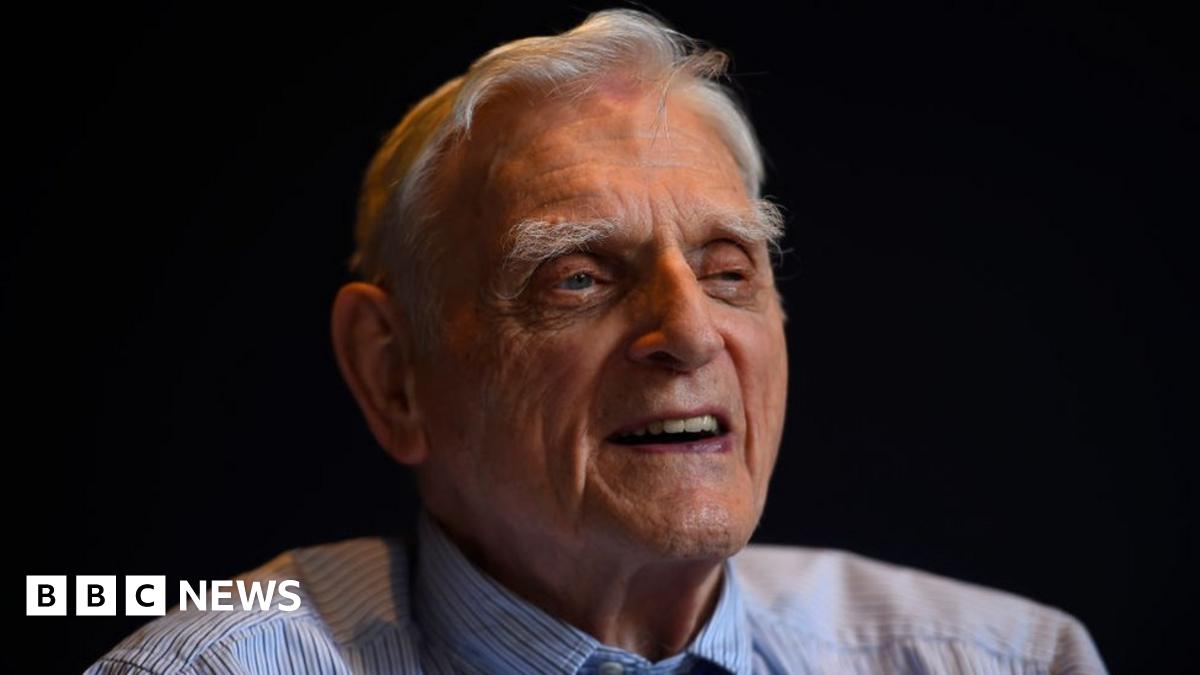
John Goodenough: World's oldest Nobel Prize winner dies at 100
John Goodenough won the Nobel Prize in chemistry at the age of 97 for his revolutionary work.
John Goodenough, the world's oldest Nobel Prize winner who played a crucial role in developing the lithium-ion battery, has died at the age of 100.
He passed away on Sunday, according to the University of Texas at Austin, where he worked as an engineering professor.
"John's legacy as a brilliant scientist is immeasurable," said University of Texas at Austin President Jay Hartzell.
Lithium-ion batteries power millions of electric vehicles around the globe.
The University of Texas described him as a "dedicated public servant, a sought-after mentor and a brilliant yet humble inventor".
Dr Goodenough was awarded a Nobel Prize in chemistry in 2019 at the age of 97 for his work on batteries, including the development of the lithium-ion battery.
The lightweight, powerful battery sparked a revolution in technology, paving the way for modern portable electronics such as laptops and mobile phones. The batteries also play a critical role in powering larger modern devices, including solar panels.







